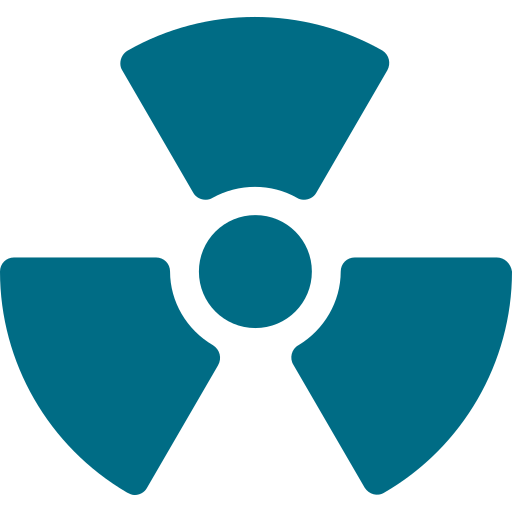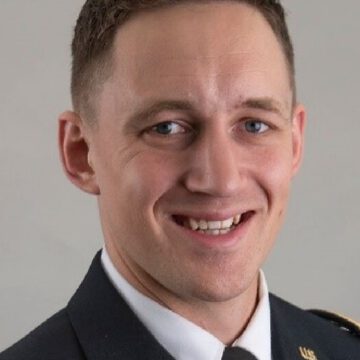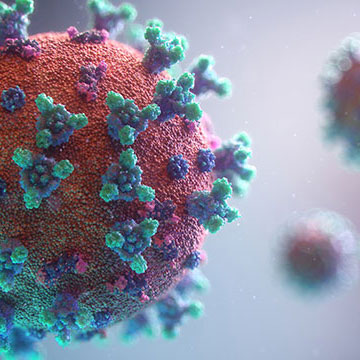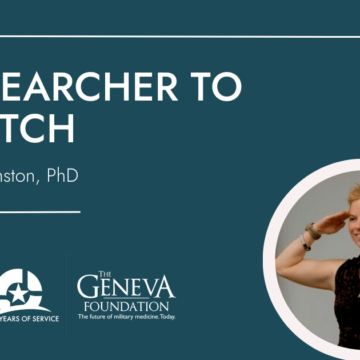Chemical, Biological, Radiological, Nuclear, and High Yield Explosives
SAVING LIVES BY MITIGATING MODERN BATTLEFIELD THREATS
Geneva’s CBRNE research focuses on the development, testing, and evaluation of prophylaxis, therapeutics, and diagnostics against CBRNE threats of security concern, with a purpose to develop medical countermeasures to protect the warfighter and maintain maximum global operational capability.
To address the complex challenges posed by CBRNE threats, Geneva’s team of multidisciplinary experts and collaborators are examining key areas:
Detection and Identification: Developing advanced sensors and detection technologies capable of rapidly and accurately detecting various CBRNE agents in diverse environments.
Protection and Personal Equipment: Researching and improving personal protective equipment (PPE), collective protection systems, and decontamination methods to enhance the safety and survivability of military personnel in CBRNE environments.
Medical Countermeasures: Investigating medical treatments, vaccines, antidotes, and therapeutics to mitigate the effects of exposure to CBRNE agents.
Decontamination and Remediation: Developing efficient and environmentally friendly methods for decontaminating equipment, infrastructure, and personnel following exposure to CBRNE agents.
Modeling and Simulation: Utilizing computational modeling and simulation techniques to predict the behavior, spread, and impact of CBRNE agents in different scenarios. This includes developing mathematical models, virtual reality (VR) and augmented reality (AR) simulation software, and predictive analytics to support decision-making and risk assessment.
U.S. ARMY AWARDS GENEVA AND ERP INTERNATIONAL MULTI-YEAR CONTRACT TO DELIVER CHEMICAL AND BIOLOGICAL DEFENSE SOLUTIONS TO THE WARFIGHTER
The Geneva Foundation wins subaward from ERP International, LLC (ERP) of a potential ten-year, $869 million contract ceiling indefinite-delivery, indefinite-quantity (IDIQ) contract by the U.S. Army Combat Capabilities Development Command, Chemical Biological Center (DEVCOM CBC) Scientific, Technical, Engineering and Program Support Services (STEPSS).
ERP’s Chief Scientist Dr. Venkat Rao stated, “The Geneva Foundation is a highly valued strategic partner that positions us well to support the Army DEVCOM science and technology CBRN requirements in support of the warfighter.”
Learn moreGeneva Expertise
Featured Researcher
MAJ Kyle Couperus, MD
Dr. Couperus is applying technologies like virtual reality (VR), mixed reality, wearables, eye tracking, machine learning and natural language processing to show the immense potential of medical simulation in military training programs. These simulations allow service members to practice response protocols, decision-making skills, and teamwork under realistic conditions, helping to improve readiness and resilience in the face of CBRNE hazards and more.
Featured Case Study
Operation Warp Speed
Operation Warp Speed (renamed the COVID-19 response operation in January 2021) and the multi-agency initiative’s central goal – to develop, produce, and distribute 300 million doses of a safe and effective coronavirus vaccine by January 2021 – required a deep knowledge of science and how to manage complex government operations while navigating a challenging pandemic. Geneva’s work in Operation Warp Speed provided an invaluable perspective on the type of rapid, large-scale, and highly-coordinated efforts required to address potential future biothreats.
Researcher To Watch
Sara Johnston, PhD
Dr. Johnston is a Research Microbiologist and Team Lead for Project Implementation Team in the Virology Division at the U.S. Army Medical Research Institute of Infectious Diseases (USAMRIID). Currently, she is the Principal Investigator (PI) at USAMRIID for a new Geneva-managed research program titled, “Prophylactic Evaluation of a Nipah Virus Monoclonal Antibody Medical Countermeasure.”





